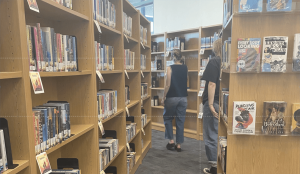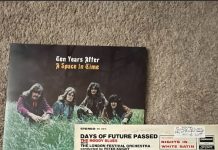By Brianna Gracia

Reading classic literature means something different to everyone. Maybe it means the book was written by an author with a fancy name or published before 1960. Perhaps the author was a snobbish old man who happened to have a tragic past. Maybe, if you’re “lucky,” the book will have some “profound, deep, open-ended” meaning that you can only understand if you are “smart enough.” Every year, we are fed “classic” after classic and told that they are fundamental to the ability to appreciate and understand “good literature.”However, this is far from the truth.
This year, a few literary selections included Romeo and Juliet (English 9), To Kill a Mockingbird (English 9H), Animal Farm (English 10), Frankenstein (English 10H), The House on Mango Street (English 11), The Great Gatsby (English 11H), Hamlet (English 12), and Beloved (English 12H). Some of these books do live up to the name of “classic literature,” while others haven’t been as well received.
“The Stranger was my least favorite book,” sophomore Karma Greenlee said. “The main character had no reason to do anything. He was bland – which may have been the point – but you couldn’t root for him. The climax didn’t feel like the climax because I didn’t care about the story, and therefore didn’t care about the main character.”
It seems that older books and literature deal with topics and ideas that may not necessarily age well in today’s society. While it is very important to discuss these topics, the way they are presented may not be the most beneficial or empowering. For example, The Stranger deals with themes of existentialism and the meaning (or lack thereof) of living.
This was a topic of the English 10H curriculum, and therefore, it was convenient for classes to read The Stranger. However, many students agree they would never read this book if they had a choice.
“I think that having students read only classic novels distorts their sense of reading because it’s very uncommon for students to enjoy these kinds of books,” senior Stella Garner said. “I believe that everyone would love reading if they just found the right book for them. Not allowing students to have a choice keeps them from finding what they really enjoy.”
Where there were bad books, there were also great books that were received well by students. Karma Greenlee, a tenth grader at Coronado High School, mentioned that their favorite book last year was And Then There Were None by Agatha Christie.
“I love the way she writes and throws everyone for a loop,” Greenlee said. “She’s amazing at writing twists. She takes so many clues with poetry and turns them on their head.”
Many other students praised Christie’s amazing storytelling and writing expertise. And Then There Were None not only had excellent writing, but students didn’t need to fill out analysis
essays or search for figurative language. It gave them a chance to enjoy the book for what it was. Searching for similes or quotes to fill out questions takes away focus from the book, which takes away from the experience. When students were allowed to just take in And Then There Were None, the feedback was pretty positive compared to books read this year.
Clearly, the students want books they can connect with. They want to see characters they can root for and even see in themselves. Books are meant to open your imagination, bring about emotions, and create an imprint on one’s mind. They were never supposed to be an excuse to write another analysis or fill out a test. The magic of reading shouldn’t be lost in schoolwork.











